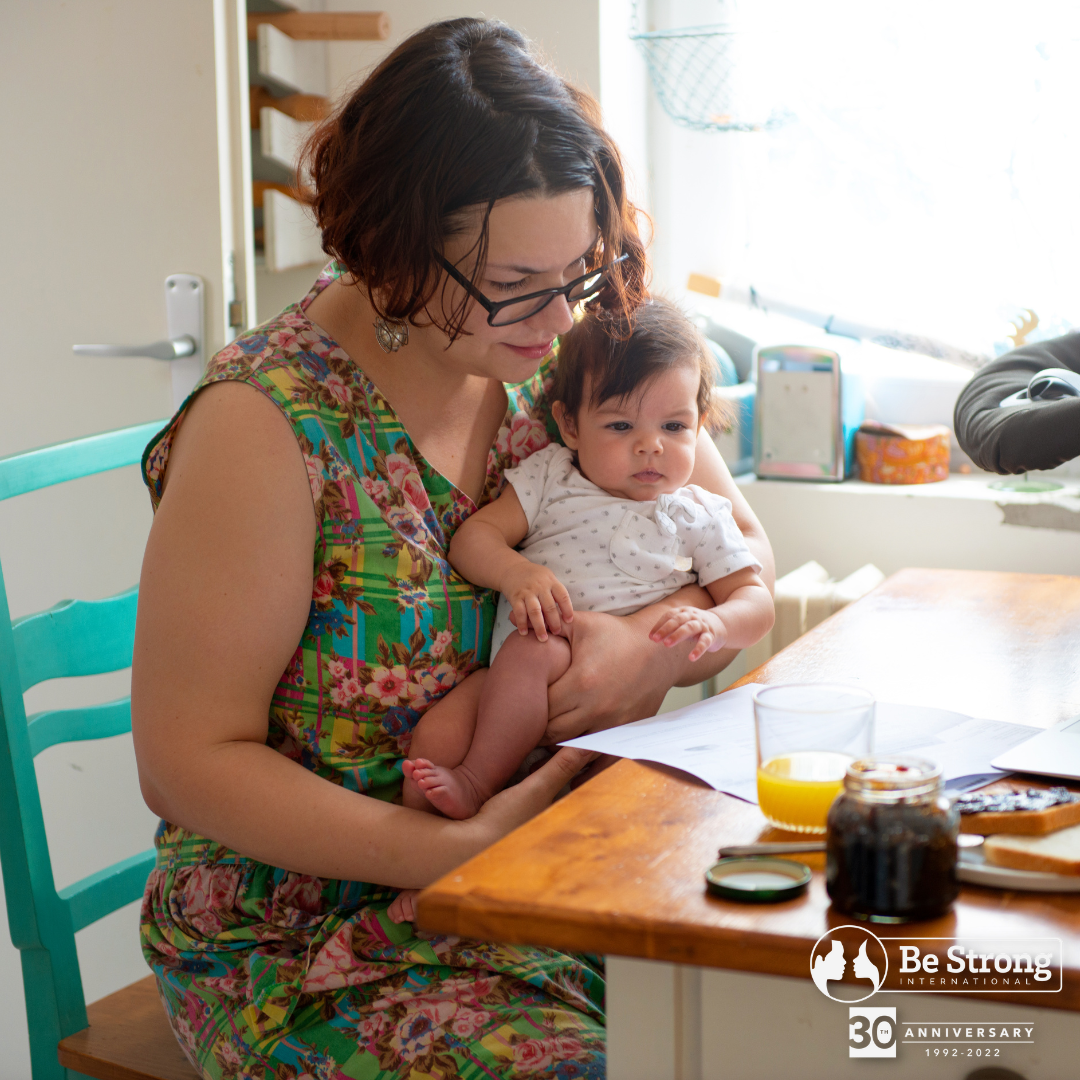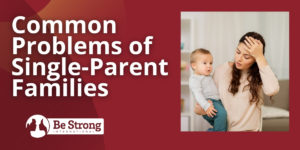Single-parent families face many problems, from financial struggles to custody issues and conflicts with their children’s other parent. Without a partner to share the load, it can seem even harder. The most common problems are about money, time and child-rearing concerns; there’s never enough of the first two and too much of the third. But with a good support system, you can overcome many of these problems and build a stronger, happier family.
Single Parenting Today
About 24 million U.S. children under 18 live with an unmarried parent, according to the Pew Research Center. This includes children whose parents both live with them but aren’t married to each other. About 15 million live with only a single mother and 3 million with only a single father. The Pew Center predicts that because of increasing divorce rates, more than 1 in 5 children born within a marriage will experience their parents breaking up by the time the children are 9 years old.
Common Problems of Single-Parent Families
Single-parent families come in all varieties. Many are highly educated. Many never finished high school. Some are rich and some barely make minimum wage. But they share some common problems.
Financial Problems
Pew reports that 30% of single mothers and their families are living below the poverty line, compared to 17% of single-father families. Money problems start almost as soon as one parent moves out. If both parents are working outside the home, the split will sharply reduce income for both. But money problems hit harder for the custodial parent. Usually, that’s the mother:
- If she was a full-time homemaker, she might get alimony and child support. But she’ll have to pay income tax on the alimony, while her ex-husband can get a tax deduction for his payments. Many single mothers have trouble collecting child support. They often give up even when their ex owes them thousands of dollars.
- She may have trouble finding or keeping a job that pays well enough to properly support herself and her children. A woman who had been working before the divorce may have to cut back her hours or turn down higher-paying assignments without a partner to pick up the slack.
- Parents whose spouse has died have even fewer options than the divorced single parent. Most widowed parents don’t inherit generous estates or life insurance benefits that make them independently wealthy – or even comfortable.
Time Problems
Parents never seem to have enough quality time to spend with their children. Time feels even scarcer for single parents.
- The custodial single parent’s day often begins with a morning scramble to get everyone up, clothed, fed, and out of the house for school or work. After a day on the job, they hustle everyone to after-school activities. They come home and manage dinner while supervising homework. They catch up on laundry and other household chores after everyone is in bed – assuming they just go to bed without constant interruptions. The day is even more chaotic if the parent has to work a second job.
- Life isn’t as chaotic for the non-custodial single parent. But time is still a problem. They get to see their children for only a few hours a week. To make the most of those few hours, they might try to over-stuff the weekend or evening with “meaningful” activities. Single-parent families can lose valuable bonding time while adjusting to the start and end of their visitation. The children may see the non-custodial parent as an outsider, not part of their family anymore.
Child-Rearing Issues
These are the toughest problems for many single-parent families.
- The custodial parent has to make most child-rearing decisions alone. They can’t consult the other parent for support on day-to-day problems and concerns. If they’re divorced because of abuse or other risky behavior, they may want to avoid the other parent completely.
- The custodial parent may also feel like “the bad guy” who enforces rules and makes other difficult decisions, while the other parent is “the fun one” who serves ice cream for dinner, showers the kids with gifts, and seems to let them do whatever they want. The children’s return from a weekend with a fun dad or mom can be a tense, upsetting time for everyone.
- Disagreements over child-raising questions can turn into angry confrontations. No matter how hard you try to protect your children from fights like these, they’re almost always aware of them – a stressful position to put them in.
- It’s tempting to turn children against the other parent and use them as weapons even after the divorce is final. Children can become “spies” who are expected to report everything they see when with the other parent. Is she dating anyone? Does he ever drink in front of you?
Solutions
There are many resources out there to help your single-parent family succeed. Here are some strategies to try now:
Gain Financial Control
- Figure out where your money is going. Track your expenses for one month – everything. At the end of the month, look at the list and see what you can eliminate or reduce. If you eat lunch out every workday, can you brown bag it two or three days a week? Put the money you save into a savings account for emergency expenses.
- Use your expense list to set up a budget. But be realistic. Don’t decide you’ll never eat out again, or vow to save $100 a month, unless you honestly think you can do it.
- Do you deserve to treat yourself? Of course you do! Should you treat yourself? Only if you can pay cash. The credit-card interest on a new pair of shoes bought “just because” may last longer than the shoes. Save credit cards for true emergencies.
- Be honest with your children about your financial circumstances. If money is tight, let them know. Don’t scare them or make them feel guilty. Be as positive you can be without sugarcoating it. “It’ll be tough but I’m doing all I can to get us through this” is a good approach.
Create a Support Network
- Ask friends and neighbors for emergency childcare backup when your ex can’t (or won’t) step up.
- Join a single-parent support group in your community, where you can talk things through and learn helpful strategies from other single parents. Community-based agencies like Be Strong International can help you find one and offer a wealth of other resources – many of them free or low-cost. Be Strong offer a Raising the B.A.R. Parent Club, which is a free program for parents who need advice and support.
- Enlist your children to help you with household tasks – as long as they’re age-appropriate. They’ll learn responsibility and will enjoy feeling like your ally. Do tasks together to give yourself a little more time with them.
Give Yourself a Break
You’ll make mistakes as a single parent, but don’t beat yourself up. Ask for help when you need it and move on. The only person who expects you to be perfect is . . . you.











